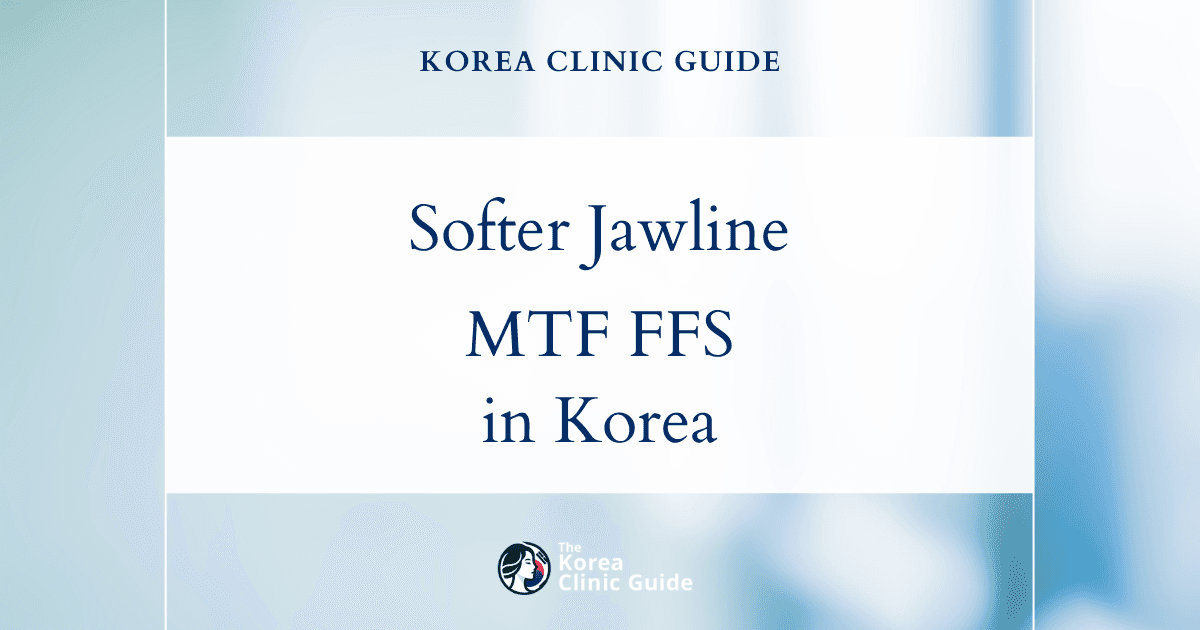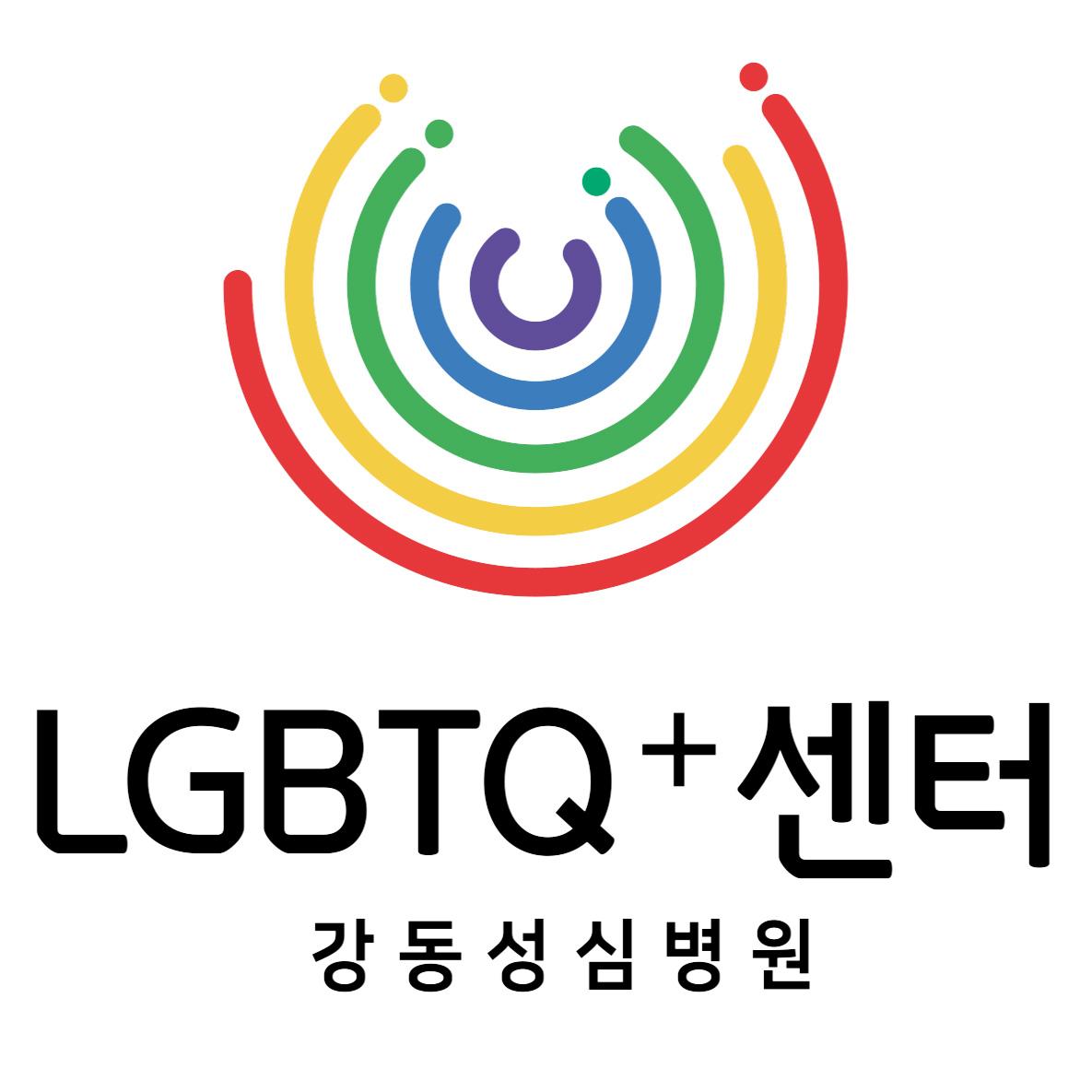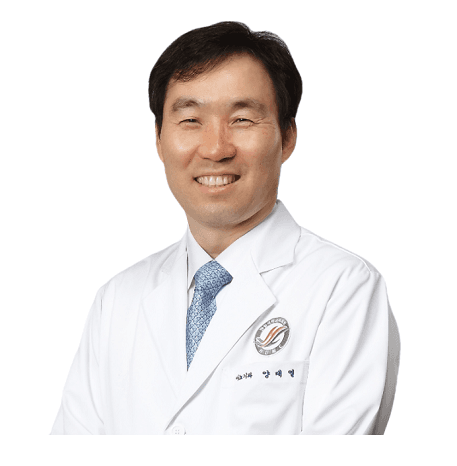Medical Tourism Blog
Soft Chin FTM Solutions: Facial Masculinization Surgery Options in Korea for Transgender Men

Table of contents
- Understanding "Soft Chin FTM"
- Facial Masculinization Surgery (FMS) Explained
- Best Clinics in Korea for Soft Chin Ftm
- The Journey to FMS in South Korea: A Medical Tourist’s Process
- FMS Costs: South Korea vs. Global Destinations
- Patient Experiences and Outcomes: A Transformed Sense of Self
- Conclusion
- References
If you’re a transgender man (FTM) or a non-binary individual looking for solutions to a “soft chin” or a chin that lacks masculine projection, this guide is for you. Here, you’ll find detailed, easy-to-understand information about Facial Masculinization Surgery (FMS), with a special focus on chin and jaw augmentation, how to access these procedures in South Korea, what they cost, and the life-changing impact they can have. For many FTM individuals, having facial features that match their gender identity is vital for well-being and easing gender dysphoria. The chin and jawline are especially important in shaping how you see yourself and how others see you. FMS can help you achieve a look that feels more authentic and affirming.
Understanding "Soft Chin FTM"
The phrase “soft chin ftm” is commonly used to describe a chin that looks round, less defined, or set back—traits not typically associated with a masculine face. Medically, this is often called a “weak chin,” “receding chin,” or “recessive chin,” and the emotional discomfort it causes is sometimes referred to as “weak chin dysphoria.” The technical terms are “retrogenia,” “mandibular retrognathia,” or “retrognathism,” which mean the lower jaw sits further back than it should. It’s important to note that retrognathia is different from micrognathia (an unusually small chin) or an overbite, though an overbite can make a receding chin look even more pronounced.
A “soft chin” can be inherited or part of a congenital syndrome, and while some chins become more prominent with age, others remain less developed. As people get older, bone and tissue loss can make a weak chin stand out more. But the impact isn’t just cosmetic—a soft chin can deeply affect self-esteem and social comfort, often intensifying gender dysphoria. Many people avoid mirrors or certain camera angles, and even if others don’t notice the feature, the internal distress can be overwhelming. This highlights why it’s so important for healthcare providers to listen and validate these feelings, no matter how “minor” the feature might seem to someone else.
A recessed chin can also throw off facial balance, making the nose look bigger or the neck less defined. In more severe cases, it can cause functional problems like trouble chewing, jaw pain, speech issues, mouth breathing, snoring, or even sleep apnea. So, for FTM individuals, addressing a “soft chin” isn’t just about looks—it can also improve quality of life and prevent health issues. This broader perspective can even influence insurance coverage, as procedures that improve function may be more likely to be covered than those seen as purely cosmetic.
Facial Masculinization Surgery (FMS) Explained
Facial Masculinization Surgery (FMS) is a set of procedures tailored to help transform feminine facial features into a more traditionally masculine look. The main goal is to create a face with stronger, more angular features—especially the brow, chin, jawline, and nose. FMS isn’t just about physical change; it’s about helping people feel more at home in their bodies, reducing gender dysphoria, and boosting confidence. It can also help with “passing,” which can make social interactions safer and more comfortable.
Chin and Jaw Masculinization Procedures:
-
Chin Augmentation (Genioplasty / Mentoplasty):
- Purpose: To add volume, increase height, width, or projection, or reshape the chin into a more square, masculine form—directly addressing a “soft chin.”
- Techniques:
- Chin Implants: Surgeons use materials like silicone or Medpor, or sometimes bone or fat, to enhance the chin. Incisions are usually inside the mouth or under the chin, and implants are generally permanent.
- Sliding Genioplasty (Osseous Genioplasty): This involves cutting and moving the chin bone forward, backward, or changing its height/width, then securing it with sutures or titanium screws. This uses your own bone, which some surgeons prefer to avoid issues with foreign materials. Incisions are inside the mouth, so there’s no visible scarring. Some surgeons favor implants for simplicity, while others prefer bone repositioning for fewer long-term risks—so it’s important to discuss your surgeon’s approach.
-
Jawline Enhancement:
- Purpose: To create a broader, more angular jawline typical of masculine faces.
- Techniques: Implants (usually silicone or Medpor) are placed at the jaw angle to make it wider and squarer. Custom wrap-around implants can be used for dramatic changes, especially if the jaw is naturally narrow or to complement hormone therapy. Incisions are typically inside the mouth.
Other Common FMS Procedures: While chin and jaw are the focus, FMS often includes other procedures for overall facial harmony:
- Brow Enhancement: Raising and flattening the forehead, augmenting the brow ridge, and sometimes masculinizing the hairline.
- Rhinoplasty (Nose Reshaping): Making the nose larger or more prominent, or reshaping the tip.
- Adam’s Apple Augmentation: Creating a visible Adam’s apple with a Y-shaped implant or rib cartilage.
- Cheek Augmentation or Reduction: Sculpting higher cheekbones or reducing fat pads for a more angular look.
Non-Surgical Alternatives: Dermal fillers like Radiesse, Sculptra, or Juvederm can temporarily add volume to the chin and jaw. These are minimally invasive, offer immediate results, and are adjustable, but they only last 6–24 months and require repeat treatments. Over time, the cost of fillers can exceed that of surgery, making FMS a more permanent and cost-effective solution for dramatic changes.
Risks and Complications: All surgeries carry risks, so it’s important to have open conversations with your care team. General risks include anesthesia side effects, bleeding, infection, swelling, scarring, and poor healing. Implants can shift, be rejected, or cause nerve or tooth damage. Other risks include asymmetry, lumps, bruising, and numbness. Choosing an experienced, board-certified surgeon who specializes in gender-affirming facial surgery is key to minimizing these risks.
Best Clinics in Korea for Soft Chin Ftm
Listed below are the best clinics in Korea for soft chin ftm:
| Clinic Name | Key Features | Special Techniques |
|---|---|---|
| THEPLUS Plastic Surgery | Four specialized floors in Garosu-gil, Gangnam; led by Dr. Kim Taek Kyun (facial contouring, 3D implants) and Dr. Jeong Jae Yong (rhinoplasty, revision); Dr. Lee (breast specialist); globally respected surgeons; continuous academic contributions; modern, discreet environment for international patients | 3D simulation & surgical planning; personalized FTM chin surgery focused on masculine harmonization; state-of-the-art facial contouring; Dr. Kim's custom implant techniques; comprehensive pre-op and post-op care |
| Made Young Plastic Surgery | Gangnam location; premium facial aesthetics & anti-aging focus; top doctors with 15+ years’ experience; rigorous safety (full-time anesthesiologist, cross-check system, CCTV); award-winning clinic; certified by top Korean medical societies; patient-centric, one-on-one consultations | Customized Soft Chin FTM surgery; blend of traditional surgical and advanced non-invasive techniques; natural & harmonious chin/jawline shaping; systematic aftercare center |
| Kangdong Sacred Heart Hospital LGBTQ Plus Center | Cheonho location; comprehensive care for transgender individuals; leading gender-affirming center; hormone therapy, mental health counseling, fertility preservation; voice training, infectious disease care; fully inclusive and patient-centered | Soft Chin FTM surgical expertise; individualized, holistic treatment plans; multi-disciplinary support for surgical and non-surgical gender-affirming needs |
THEPLUS Plastic Surgery
THE PLUS Plastic Surgery clinic, situated in the heart of Garosu-gil, Gangnam, Seoul, stands as a leader in the field of advanced aesthetic medicine, offering a comprehensive range of surgical and non-surgical cosmetic procedures. Spanning four purpose-designed floors, THE PLUS seamlessly integrates every aspect of patient care—from personalized consultations and cutting-edge surgical techniques to attentive post-operative management—delivered by a team of globally respected plastic surgeons. The clinic is spearheaded by Dr. Kim Taek Kyun, a world-renowned board-certified expert in facial contouring and rhinoplasty with numerous awards for his pioneering work in 3D implants, and Dr. Jeong Jae Yong, President of the Korean Society of Plastic Surgeons and a celebrated authority in rhinoplasty and revision surgery. Supporting their excellence is Dr. Lee, a highly experienced breast specialist recognized for her work in prestigious hospitals nationwide. Recognized for both surgical artistry and scientific advancement, THE PLUS surgeons are frequently invited to share their expertise at leading international conferences and educational forums, keeping the clinic at the forefront of the rapidly evolving field of plastic surgery.
Why THE PLUS Plastic Surgery is the Top Choice for Soft Chin FTM Surgery:
- Unparalleled Expertise: Dr. Kim, an internationally acclaimed leader in facial contouring, specializes in harmonizing the chin and jawline to suit each individual’s unique features—an essential aspect of successful FTM (female-to-male) soft chin surgery.
- World-Class Medical Team: Dr. Jeong’s prominence in reconstructive rhinoplasty and functional aesthetics means the clinic offers highly advanced, balanced approaches to facial masculinization, including the chin, ensuring both natural appearance and optimal function.
- Academic Leadership: The surgeons at THE PLUS are not just practitioners but also authoritative researchers and educators, actively contributing to medical journals and conducting annual training sessions for fellow surgeons—guaranteeing state-of-the-art, safe, and effective techniques.
- Cutting-Edge Technology: The clinic is equipped with the latest 3D simulation tools and surgical planning systems, many of which have been enhanced by Dr. Kim’s own research on facial implants, ensuring precise, predictable, and customized outcomes for every patient.
- Patient-Centric Philosophy: With safety and satisfaction at the core, every treatment plan is meticulously tailored, with an emphasis on creating a harmonious, masculine profile that compliments the patient’s existing features.
- Comprehensive Support: From the initial consultation through surgery and recovery, patients benefit from THE PLUS’s seamless, integrated care, provided by compassionate professionals with over a decade of experience.
- Outstanding Reputation: THE PLUS’s surgeons are well-regarded both in Korea and internationally, sought after for presentations, live demonstrations, and authorship of definitive resources in rhinoplasty and facial surgery.
- Garosu-gil Location: The conveniently located, modern facility offers a discreet, comforting environment ideal for international patients seeking world-leading FTM chin procedures.
For those seeking Soft Chin FTM surgery in Korea, THE PLUS Plastic Surgery delivers the highest standards of safety, artistry, and surgical precision, making it the premier destination for facial transformation and gender affirmation treatments.
You can check out their website here: THEPLUS Plastic Surgery Website
Made Young Plastic Surgery
Made Young Plastic Surgery Clinic, located in the heart of Seoul's renowned Gangnam district, is widely recognized as a premium medical center dedicated to facial aesthetics and anti-aging treatments. Priding itself on a steadfast commitment to patient safety and satisfaction, Made Young stands at the forefront of Korean plastic surgery by integrating advanced medical techniques with a holistic approach to beauty and wellness. The clinic's philosophy is built on trust, transparency, and an individualized patient experience—delivered by an elite team of seasoned professionals. For patients seeking Soft Chin FTM (female-to-male) procedures, Made Young offers unmatched expertise, state-of-the-art facilities, and comprehensive care throughout every stage of treatment.
Why Made Young Plastic Surgery Is the Best Clinic for Soft Chin FTM in Korea:
- Only highly skilled doctors with an average of over 15 years of clinical experience in plastic and reconstructive surgery
- Direct, one-on-one consultation and diagnosis with board-certified medical specialists prior to any procedure, ensuring personalized and safe surgical planning
- Full-time, board-certified anesthesiologists provide continuous patient monitoring with a 1:1 system for optimal safety
- Advanced safety protocols, including a cross-check system among anesthesiologists and full CCTV coverage in surgical areas for complete transparency
- Dedicated aftercare center offers systematic, tailored post-procedure management to maximize results and patient comfort
- Recognized excellence through prestigious awards such as the 2022 Korea No.1 Award and Korea Customer Satisfaction 1st Place
- Official certification by the Minimally Invasive Aesthetic Surgery Society and acknowledgment as an Outstanding Member of the Korean Society of Plastic and Reconstructive Surgeons
- Emphasis on natural, harmonious results using both traditional surgical and advanced non-invasive techniques—making it particularly well-suited for nuanced FTM chin and jawline procedures
- Central Gangnam location ensures convenience, privacy, and access to Korea’s leading aesthetic medical community
Thanks to its unmatched dedication to excellence, innovative approach, and patient-centric philosophy, Made Young Plastic Surgery is the premier destination for those seeking reliable and expertly performed Soft Chin FTM surgery in Korea.
You can check out their website here: Made Young Plastic Surgery Website
Kangdong Sacred Heart Hospital LGBTQ Plus Center
Kangdong Sacred Heart Hospital LGBTQ Plus Center in Cheonho stands out as the leading clinic for Soft Chin FTM procedures in Korea, thanks to its comprehensive, patient-centered approach that addresses both the medical and emotional needs of transgender individuals. The Center is renowned not only for its expertise in plastic and reconstructive surgeries, such as Soft Chin FTM procedures, but also for offering an array of gender-affirming services including hormone therapy, mental health counseling, and fertility preservation. Their integrated services span from top and facial feminization surgeries to essential support like voice training and infectious disease care, ensuring every patient feels respected, safe, and understood. Most notably, every treatment is tailored with a deep respect for diversity, fostering a supportive environment where LGBTQ+ individuals can receive holistic care designed to improve their quality of life and overall well-being. This commitment to inclusion, expertise in gender-affirming medicine, and dedication to long-term health make Kangdong Sacred Heart Hospital LGBTQ Plus Center the best destination for Soft Chin FTM procedures in Korea.
Find more about this clinic here: Kangdong Sacred Heart Hospital LGBTQ Plus Center Website
The Journey to FMS in South Korea: A Medical Tourist’s Process
South Korea is a top destination for FMS, known for advanced technology, skilled surgeons, and competitive prices. Clinics like THE PLUS Plastic Surgery, Made Young Plastic Surgery, and Kangdong Sacred Heart Hospital are especially well-regarded.
Step-by-Step Process for International Patients:
- Initial Consultation and Surgical Planning: Start with a thorough consultation, where the surgeon evaluates your facial structure, discusses your goals, and uses 3D modeling to show possible outcomes. This ensures your expectations match what’s possible.
- Pre-operative Assessments: You’ll undergo blood tests, imaging, and health checks, plus get instructions on medications and lifestyle changes before surgery.
- Surgery: Procedures are tailored to your needs and may be done individually or together. General anesthesia is common, and incisions for chin/jaw work are usually inside the mouth.
- Post-operative Care and Recovery:
- Weeks 1–2: Expect swelling, bruising, and some pain. Keep your head elevated, use pain meds, ice your face, wear compression garments, and stick to soft foods if needed. Light walking helps prevent blood clots.
- Weeks 3–4: Swelling goes down, and you’ll start to see results. You can return to normal activities, but avoid strenuous exercise.
- Month 12: Most swelling is gone, scars have matured, and your final results are visible.
- Aftercare: Korean clinics offer extensive aftercare, including wound care, activity guidelines, and follow-up appointments. Many provide extended stays and include medications in their packages.
Support for International Patients: Korean clinics prioritize international patients, offering multilingual support and interpreters. They coordinate follow-up visits and virtual consultations, and their bundled packages cover everything from pre-op assessments to aftercare, making the process transparent and stress-free. This approach is a big reason why South Korea is so popular for complex procedures like FMS.
Many clinics also offer or recommend psychological support, recognizing that adapting to a new appearance can be emotionally challenging. It’s wise to choose a clinic that supports your mental health as well as your physical recovery. Always research your options, consult multiple clinics, and look for board-certified surgeons with experience in gender-affirming care.
FMS Costs: South Korea vs. Global Destinations
The cost of FMS varies widely, depending on the number and type of procedures, the surgeon’s experience, and the clinic’s reputation and location.
Cost Breakdown in South Korea:
- Overall FMS: $10,000–$20,000 USD, usually including pre-op assessments, consultations, overnight stays, aftercare, and medications.
- Chin implant: Starts at $7,000 USD.
- Genioplasty: $3,000–$5,000 USD (4,000,000–6,800,000 KRW).
- General chin surgery: $5,100–$5,500 USD (₩7,200,000–₩7,900,000).
Additional Expenses:
- 10% deposit to secure surgery.
- Flights: $500–$1,000 (economy), $1,500–$2,500 (business).
- Accommodation: $30–$60 (budget), $80–$150 (mid-range), $200–$400 (luxury) per night.
- Meals: $10–$50/day; local transport: $5–$20/day.
Even with travel costs, South Korea offers a great balance of affordability and expertise.
Global Cost Comparison:
| Procedure Category | USA ($) | UK ($) | Thailand ($) | Turkey ($) | South Korea ($) |
|---|---|---|---|---|---|
| Overall FMS (Total) | $20,000–$50,000 | $15,000–$40,000 | $10,000–$20,000 | $5,000–$15,000 | $10,000–$20,000 |
| Forehead Augmentation | $8,000–$15,000 | $6,500–$12,000 | $2,000–$3,000 | $1,500–$3,000 | Included in FMS total |
| Hairline Repositioning | $9,000–$15,000 | $6,500–$13,000 | $3,500–$7,300 | $3,500–$7,000 | Included in FMS total |
| Rhinoplasty | $11,000–$18,000 | $8,000–$13,000 | $3,000–$5,500 | $2,500–$5,500 | Included in FMS total |
| Buccal Fat Removal | $2,000–$5,000 | $4,500–$6,500 | $1,000–$2,500 | $1,500–$2,300 | Included in FMS total |
| Jaw and Chin Augmentation | $8,000–$15,000 | $5,700–$9,000 | $1,500–$3,000 | $2,000–$4,500 | $3,000–$7,000 |
| Adam’s Apple Augmentation | $3,500–$6,000 | $2,800–$5,000 | $1,500–$3,000 | $2,000–$4,500 | Included in FMS total |
| Fillers (per session) | $1,500–$2,500 | $800–$2,000 | $300–$800 | $250–$700 | Included in FMS total |
Key Takeaways:
- The USA and UK have the highest FMS costs.
- Turkey and Mexico are the most affordable, with all-inclusive packages.
- Thailand and South Korea offer similar overall costs, but South Korea is especially competitive for chin and jaw procedures.
- South Korea’s reputation for advanced technology and skilled surgeons, plus bundled services, makes it a top choice for those focused on chin and jaw masculinization.
While fillers seem cheaper at first, their recurring costs can quickly add up. For permanent results, surgery is more cost-effective in the long run. In Korea, paying in full or combining procedures can lead to discounts.
Patient Experiences and Outcomes: A Transformed Sense of Self
For many FTM individuals, a “soft chin” is a major source of dysphoria, leading to discomfort and a desire to hide their profile. Patients often describe their distress as stemming from features others might not even notice, relying on camera tricks to conceal their chin.
Physical and Aesthetic Results: After surgery, patients report dramatic improvements—more defined, masculine facial features, a chiseled jawline, and a stronger profile. Chin augmentation, in particular, creates a squarer, more masculine look.
Psychological and Emotional Benefits: The benefits go far beyond appearance. Many patients experience a surge in self-confidence, reduced anxiety and depression, and a greater sense of purpose. Some even say the surgery gave them a new lease on life. The ability to “pass” more easily in public also reduces stress and increases comfort.
Recovery and Satisfaction: While recovery can be tough, most patients say it was absolutely worth it. Satisfaction rates are high, and studies show low complication and revision rates for genioplasty. The permanence of surgical results means no more ongoing treatments.
The relationship with the medical team is also crucial. Patients consistently praise clinics where they feel cared for, validated, and supported. This emotional support is just as important as surgical skill in ensuring a positive experience and outcome.
Conclusion
A “soft chin,” or retrognathia, is a common concern for FTM individuals, affecting both appearance and sometimes function. Facial Masculinization Surgery—especially chin and jaw augmentation—offers a permanent, transformative solution. South Korea stands out for its advanced expertise, bundled care, and competitive pricing, making it a top choice for medical tourists. Most importantly, FMS delivers profound psychological benefits, helping individuals align their appearance with their identity and live more confidently and authentically.
References
1, 2, 3, 4, 5, 6, 7, 8, 9, 10, 11, 12, 13, 14, 15, 16, 17, 18, 19, 20, 21, 22, 23, 24, 25











